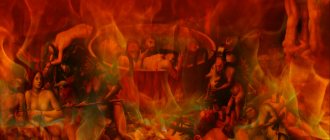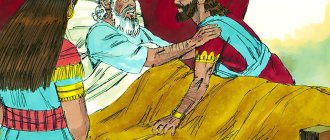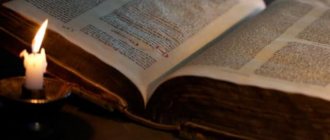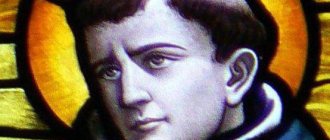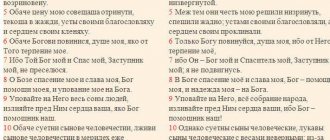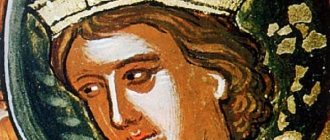Telegram channel @ieshua.org
Some say that being born of a virgin means that Yeshua (Jesus) cannot be the Messiah. You see, one of the necessary characteristics of the true Messiah of Israel is that He comes from the line of King David (Isaiah 7:13-14;9:6-7; Jeremiah 23:5-6). Since Yeshua did not have an earthly father, and it is the paternal family line that must go back to David, it turns out that Yeshua cannot be from the line of David. In other words, if He was born of a virgin, does that disqualify Him from being the “son of David”?
A Tale of Two Bloodlines
But, in fact, the line of David goes not only through Yeshua’s stepfather, Joseph, but also through His mother Miriam. Although it is not immediately apparent, Luke's account traces Miriam's genealogical line to King David: “Jesus, when he began [His ministry], was about thirty years old, and was, as they thought, the Son of Joseph, of Eli, of Matthiat, of Levi... of Risaev, of Zerubbabel, of Shealathiel. ... Nathan, David" (Luke 3:23-31).
Scientists have uncovered interesting things about this genealogy. Paternal descent was vital in the first century. The Talmud makes it clear that “only the family of the father is called family; The mother’s family is not called family” (Yevamot 54b). Therefore, when Luke gives Miriam's genealogy, he follows the officially sanctioned method of attaching the line to Yeshua's stepfather, Joseph.
Regarding the Greek phrase “as thought,” Risto Santala writes: “The Greek phrase corresponds to the Hebrew expression ke-hozqâ or kemô huhzaq, which means that the matter was legally confirmed. Thus, before the law, it was right to connect Yeshua through Joseph with his father-in-law,” that is, the father of Miriam - “Hili” or Elijah. (The Messiah in the New Testament in the Light of the Rabbinical Writings, William Kinnaird, Jerusalem: Keren Ahva Meshihit).
On the other hand, Matthew records that Joseph's own genealogical line goes back to King David: “David the king begat Solomon... Shealtiel begat Zerubbabel; Zerubbabel begat Abihu; … Eleazar gave birth to Matthan; Matthan gave birth to Jacob; Jacob begat Joseph, the husband of Mary, from whom was born Jesus (Yeshua), who is called Christ (Messiah)” (Matthew 1:6-16).
Reading “begat” in the most natural way—as a reference to biological descent—we see an indication that Matthew was recording the genealogy of Joseph. Thus, we have two different lineages represented in the two gospel narratives. Joseph was descended from David's most famous son, Solomon; and Miriam through Nathan, another son of David.
Therefore, both narratives tell us that both Joseph and Miriam are from the line of King David. But there is more to this story, as the Tanakh gives some important information about why Yeshua's unique lineage is so important.
Herod the Great and his sons
This man is mentioned in the Gospel in connection with one single episode - the extermination of the Bethlehem infants after the Nativity of Jesus, and only Matthew talks about this. He wrote primarily for the Jews, and they remembered very well who King Herod the Great was! It turns out that this particular king did not stop in the face of obvious villainy and killed many innocent children in order to get rid of an imaginary competitor.
Here an interesting question arises: we know nothing or almost nothing about most of the heroes of the New Testament from historical sources, while ancient historians tell us a lot about the famous King Herod. And among these stories there is not even a mention of the Bethlehem atrocity! Why?
But before we make an assumption, let's talk about what Herod became famous for. He was a truly effective ruler and knew how to get his way. With Roman help, he successfully repelled attacks from external enemies, the Parthians and Arabs, and dealt with internal opposition without hesitation. He married the granddaughter of the high priest Hyrcanus II to give legitimacy to his dynasty. But most of all he is known for his construction program: under him, new quarters of Jerusalem, reliable fortresses, luxurious palaces, and modern theaters were erected (the theaters, however, offended the extreme zealots of the Jewish religion).
The most important thing is that the Temple was rebuilt under him. When Herod came to power, the same modest building stood on the Temple Mount in Jerusalem, which was erected by immigrants from Babylonia immediately after returning to Jerusalem. The Romans were ashamed of this small, dilapidated building... Herod in 22 BC. e. begins a radical restructuring of the entire temple complex, which lasts nine years - and all this time the services do not stop. The Western Wall, which can still be seen in Jerusalem today, is just part of the platform built by Herod to expand the space for the Temple. You can imagine how magnificent its construction itself was! It is to this Temple that Jesus will then come... but the Temple will stand for less than a century and will be destroyed by the very Roman legions that brought Herod to power.
Greatness is not always associated with morality, and it often turns out that rulers who achieved tremendous success shed rivers of blood. So under Herod the Great, torture and execution for the most insignificant reasons became the norm. He exterminated all the descendants of the previous dynasty, the Hasmoneans. At different times, he sentenced his own beloved wife and two sons to execution on mere suspicion. Being seriously ill, a few days before his death, he ordered to gather all the Jewish nobility in the circus and kill them without exception - however, this will was never fulfilled. Against the backdrop of such high-profile atrocities, the quiet murder of unknown babies in the small town of Bethlehem may simply not have worried the historians of that time, because Herod’s record included much more striking crimes. And here are just babies... But the Christian Church honors these babies as saints, and not the great king who rebuilt the Temple, and not even his innocently murdered sons - a lesson for future generations, who will more than once yearn for earthly greatness and a strong hand.
It is difficult to name the exact date of the beginning of Herod's reign, because... He gained power over Judea gradually; usually the beginning of his sole rule is considered to be 37 BC. e. We know the date of his death exactly: it is 4 BC. e. But then it turns out that Herod died before the birth of Christ? Only if we take the 1st year AD as the date of this Christmas. e. (1st year A.D., as they wrote before). Indeed, “our era” dates back to Christmas, but its estimated date was calculated inaccurately in the early Middle Ages - after all, neither the Bible nor any other ancient authoritative sources contain clear indications of it, and the calculations were very approximate. And now everyone has become accustomed to just such a chronology, and even if someone is confused by the fact that Christmas took place several years before the beginning of a new era, no one is going to change the chronology system.
Herod's kingdom did not survive its ruler. Before his death, with the consent of Rome, he divided it between his sons: Herod Archelaus, Herod Antipas and Herod Philip. That is why they were called tetrarchs, i.e. "tetrarchs". Strictly speaking, there were now four parts in the state, but Archelaus received control of two at once, such was the wish of the Roman Emperor Octavian Augustus. Over time, Augustus even promised to make Archelaus king. However, the moods of the rulers are changeable: quite soon Augustus sent Archelaus into exile, and included the territory under his control (including Jerusalem) into the Roman province of Syria, now it was ruled by Roman governors.
Antipas, who inherited Galilee and Transjordan, and Philip, whose region lay east of Lake Galilee, ruled their lands much longer, although they sometimes came into conflict with each other and with Roman appointees. Evangelist Luke even notes that Herod Antipas and the Roman governor Pilate, who were previously at enmity with each other, made peace during the “trial” of Jesus.
But we will talk about these rulers and their successors mentioned in the book of Acts next time.
Curse of Jehoiachin?
According to the prophet Jeremiah, Jehoiachin (descendant of King David), was cursed and compromised the seed of David through Jehoiachin, making his descendants unable to serve as King: “Thus says the Lord: Write down this man childless, a man wretched in his days, for no one is none of his descendants will sit on the throne of David and rule over Judah” (Jer. 22:30).
Because Joseph was from this line, no physical son of Joseph could inherit the throne of David. Miriam's line was unblemished, so her son could legitimately claim the throne of David.
However, as a stepfather, Joseph was Yeshua's legal guardian. Joseph thus provides a legal connection to the line of David for Yeshua. Therefore, Joseph's genealogy is relevant to Matthew's record. This shows that Yeshua did not have a father or guardian outside the line of David that would give Him a genealogy outside the line of David.
On the other hand, even if only His mother were a descendant of David, this would be enough for Yeshua to come from the line of David. Some traditional rabbis may protest this by saying that the mother's side cannot give genealogical credentials, and it is true that the biblical record is patrilineal. However, there are clear exceptions in Scripture regarding a woman's right to pass on through family inheritance (Numbers 27:1-7).
So, whether His ancestry is viewed on the legal stepfather side or the biological mother side, Yeshua is the “son of David” and the commissioned Messiah of Israel. In fact, since the Messiah was prophesied to be “born of a virgin” (Isaiah 7:13-14), this was what His origin must have been. The fact that the true Messiah had to be not only the son of David, but also born of a virgin, narrows the genealogical line. Besides Yeshua, what other legitimate claimants claim this position?
Content
- 1 David in TaNakh 1.1 Origin and anointing
- 1.2 At the court of King Saul
- 1.3 Flight and emigration
- 1.4 In the service of the Philistines
- 1.5 King in Hebron
- 1.6 King in Jerusalem 1.6.1 Religious reform
- 1.6.2 Territorial acquisitions
- 1.6.3 Administrative reforms
- 1.6.4 Gibeonites and Mephibosheth
- 1.6.5 David and Batsheba
- 1.6.6 Decline of reign
- 5.1 Artistic arts
Son of David, Lord of David
Paradoxically, the Messiah, the son of David, was also supposed to be the Son of God—in fact, the Messiah was supposed to be the Mighty God (Isa. 9:5,6—Hebrew, El-Gibbor). The son of David is destined not only to reign from the throne of David over all Israel, but also to have supreme authority over all the nations of the world (Isaiah 2:1-4; 11:10; 49:6). Again, Yeshua is the only contender with proper credentials.
In Psalm 2:12, David wrote, “Honor the Son, lest He be angry, and lest ye perish in [your] way, for His wrath will burn quickly. Blessed are all who trust in Him.”
To “honor the Son” means to pay due respect to the Son, the symbolism of which can be seen in the kissing of the King’s ring. Therefore, Yeshua is the only one who has true power over every life. Yeshua is the only true Son of God to whom we must give due respect. Yeshua is the only Son of David who can bring true security to our people today and forever, as prophesied in Jeremiah 23:5-6:
“Behold, the days are coming, says the Lord, that I will raise up a righteous Branch for David, and a King will reign, and will act wisely, and will execute judgment and righteousness in the earth. In His days Judah will be saved and Israel will live in safety; and this is His name by which they will call Him: “The Lord is our justification!”
David in the books of TaNaKh [↑]
Many chapters of both books of Shmuel are devoted to the life of David. They tell about the youth of the hero, about his duel with the Philistine giant [Goliath, or Galjat], about the conflict with the then king Shaul.
David lived a hard and dangerous life, he wandered a lot, and was often persecuted. He survived family discord, conspiracies among his comrades, and civil uprisings.
For many years, David was a shepherd, as were the forefathers of the Jewish people, as well as the prophet Moses. In his nomadic life in the lap of nature, David acquired exceptional dexterity and strength: protecting his sheep, the young shepherd defeated lions and bears in battle ( Midrash Shmuel 2:20:5; Otzar Ishei HaTanach, David
).
Hope for the future
One day Israel as a people will enjoy this security when we as a nation return to the son of David, the Lord Messiah Yeshua, as prophesied in Hosea 3:5: “After this the children of Israel shall return and seek the Lord their God and David their king and they will revere the Lord and His goodness in the last days.”
Today, each of us personally can return to our true Lord and King, Yeshua, and be saved, live in security and accept His goodness. Let us “honor the Son” by submitting to His authority through obedience to His Word. By acknowledging our sins and relying on His atonement, trusting in His sacrifice, we can rest knowing that He is our Lord and our Righteousness.
Author - Sam Nadler / wordofmessiah.org Translation - Irina Petra for
Donate Last: 02/28. Thank you!
Subscribe: Telegram • Facebook • • • Twitter • Instagram • Youtube
Image in art
File:Michelangelos David.jpg Michelangelo, “David”
Visual arts
For many centuries, the personality of David and his exploits served as an inexhaustible source of inspiration for artistic creativity. A monumental sculpture by Michelangelo (1503, Accademia, Florence) and paintings by Rembrandt are dedicated to David.
In modern Jewish art, the image of David in M. Chagall’s illustrations to the Bible is distinguished by its originality.
Music
In music, along with Mozart’s cantata “David the Penitent,” D. Milhaud’s opera “David” (1953, libretto by A. Lunel), first staged in Jerusalem in 1954 in the presence of the composer, deserves special attention. A number of musical works are dedicated to David by Israeli composers - M. Avidom (Symphony No. 2 “David”, 1948), P. Ben-Haim (“Sweet Singer of Israel”, 1957) and others. The folk song “David melekh Yisrael hai ve-kayam” (“David, the king of Israel, is alive and existing”) is very popular.
Literature
In new Hebrew literature, David is the hero of many works: from I. L. Gordon’s poems “Ahavat David u-Michal” (“The Love of David and Michal”) and “David u-Barzillai” (“David and Barzillai”) - to the novel M. Shamir “Kivsat ha-rash” (“The poor man’s sheep”).
David appears as a symbol of the greatness of the human personality and an example of a national leader in the poetry of W. Ts. Greenberg.

